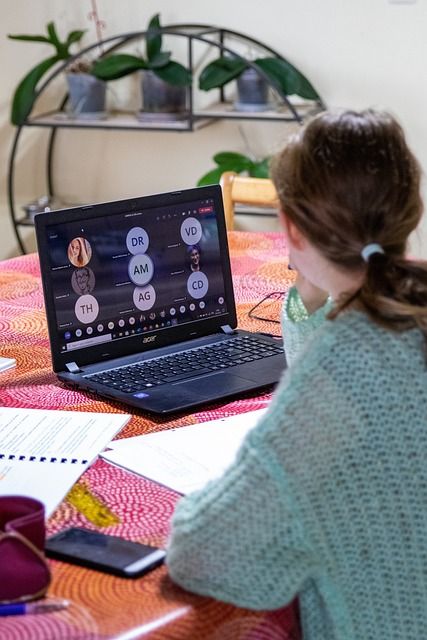
As a child, I remember watching Star Trek and being fascinated by the idea of talking to somebody on a screen. Actually, I was both fascinated and alarmed. It seemed a bit of a ridiculous concept to me and one which I was grateful I would never experience as it was so far-fetched. These people were often millions of miles apart, even in another galaxy but there they were, larger than life and talking to the crew of the Starship Enterprise.
Now, those childhood thoughts seems so naïve. Here we all are, plugged in, instantly connected across the globe, talking to one another on screens. Certainly, the advanced world of technology and cyber communication has enhanced our lives in many ways. And it was undoubtedly a blessing for many families and employers/employees during the pandemic when the whole process of connecting online really took off. But what about now when hybrid working seems to have become an embedded part of many of our lives? What are the consequences of remote forms of connection on our wellbeing and on the development of our children? We can read books on an app, find partners on dating apps, and form support groups remotely. But what are the other consequences of this disembodied way of connecting with one another?
Online Connections
As a therapist and supervisor, working online means that I can be available and more accessible to a far wider number of clients and supervisees and am not restricted to solely working with those who are geographically close to me. And equally I can access support and supervision for my work with those who were previously not accessible to me and this of course has huge advantages. So, I am definitely not against online forms of therapy or therapeutic support for professionals. But one thing I have definitely noticed and felt, is the difference in the type of connections that we form and the phenomenon called zoom fatigue.

Being on screen a lot more than I ever have been means that I feel a visceral need to avoid turning on my computer and switching off from the digital world for at least one day a week to reconnect with a time when remote working was not the norm. Being of a generation where we did not have the internet growing up, our ‘addiction’ was to being on the phone after school. As a teenager, my parents would look at me in bewilderment and lament about their increasingly large phone bills, wondering how on earth I had so much to talk about with friends I had just spent the whole day with. Nowadays with the number of instant messaging platforms in use, many teenagers feel anxious at the very thought of making a phone call, something I feel is incredibly sad and worrying.
Our forms of connection and communication are becoming more and more fragmented and disembodied. Not only does this have the potential to lead to a change in the way we behave and treat one another but I think it also creates a speeding up of demands and expectations that do not serve us well. If somebody does not reply to our text or WhatsApp message straightaway, especially if we can see that it has been read, we can be instantly sent into a worrying mindset – why is s/he ignoring me, have I done something wrong, has something terrible happened? Our mind can quickly freefall into realms of catastrophizing and anxiety and our fear of abandonment can spike until we finally receive the emoji or the few words that reassure us all is well.
Social media is perhaps the latest in a line of measurements of ‘success’ that we use to feel good or bad about ourselves. Judging our worth on the number of likes, shares and positive comments on the various apps and platforms that have become part of the daily fabric of our world has become the norm. Many of these comments or endorsements are from complete strangers who we will never meet. And whilst I am slowly beginning to see and appreciate the value of social media marketing, my instinctive gut reaction is that I still do not warm to it.
Switch off and breathe
So where does this leave us? The world of online working and living and social media is here to stay. Love it or hate it, it is the arena in which many of us find ourselves for several hours a day. All the more important I feel to regularly take time out – to slow down and look around us – and be grateful for what we have right in front of us. To take time to actively, consciously be in our bodies, be outdoors, in nature, away from screens and of course be together in person. To briefly travel back in time to an era where none of the above was real but was just the imaginings of a great science fiction writer.






